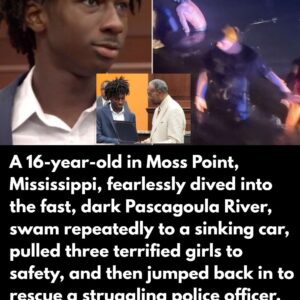At just 21 years old, Withers has become one of the most recognizable new voices in American political discourse. Known for his direct, research-driven style, he carved out an audience in a digital landscape often dominated by outrage and performance. His rise was fueled by viral debates where he clashed with well-known conservative figures, including long-form, fiery exchanges with Charlie Kirk. Those moments put him on the map, but they also cemented him as a rare young figure who could hold his own in front of massive, divided audiences.
Withers’ story is rooted in contradiction. He was raised in a conservative household in Colorado, steeped in the values of the political right, but as he grew older, he embraced progressive causes. That ideological shift gave him a unique perspective: he could speak the language of both sides, critique conservative positions with fluency, and still engage audiences who might otherwise dismiss his politics. It was this ability to navigate two worlds that helped him stand out in a crowded field of online commentators.
Yet when news broke of Charlie Kirk’s assassination, the spotlight turned to Withers for very different reasons. Kirk, just 31, had been gunned down in Utah in what authorities described as a politically motivated attack. His death sent shockwaves across the country, especially among young conservatives who had looked to him for leadership and among his critics who, while disagreeing with his views, recognized his influence.
For Withers, the news was personal. Though he had debated Kirk publicly and forcefully, he had also come to respect him as an opponent. That respect came through when he went live to process his grief in front of hundreds of thousands of viewers. His usual composure was gone. His voice broke as he admitted, on camera, that he had been crying. His eyes were red, his tone subdued. In an online culture where cynicism often reigns supreme, this raw vulnerability was striking.
“Gun violence is always disgusting, always vile, and always abhorrent,” he told his audience. The words were simple, but the weight behind them resonated. Clips of his broadcast spread quickly across social platforms and mainstream outlets alike. Within hours, the video had been seen more than 10 million times.
What made Withers’ response remarkable was not just the grief but the grace. He set aside political divides to express empathy for Kirk’s family, singling out Erika Kirk, the widow, and their two small children. He spoke directly to them through the stream, saying he hoped they felt the support of millions and reminding his viewers that political disagreement should never justify violence.
For many, that moment cut through the noise of a polarized culture. Here was a young progressive who had built part of his brand by dismantling Kirk’s arguments, yet in Kirk’s death, he refused to gloat, politicize, or turn tragedy into a talking point. Instead, he highlighted the shared humanity beneath the ideologies. Fans and even critics praised the clip as a rare lesson in empathy, proof that even in bitterly divided times, it is possible to mourn together.
The impact was immediate. Across social media, users who had never interacted with Withers before shared the video, commenting on how his tears reminded them of what is often lost in the churn of politics: compassion. Conservative figures who had once sparred with him online acknowledged the authenticity of his response. Progressive commentators celebrated the fact that he modeled vulnerability in a culture that often discourages it, especially among men.
Some analysts suggested that the moment marked a turning point in how young Americans might think about political debate. For years, the dominant mode of online discourse has been combat—who can land the sharpest insult, who can rack up the most views with fiery takedowns. Withers, by showing grief and humility, reminded viewers that there are real human beings behind the arguments, families behind the headlines, and lives that extend beyond politics.
The assassination of Charlie Kirk has already cast a long shadow over American political life. It has raised questions about security for public figures, the role of online radicalization, and the line between rhetoric and action. But in the immediate aftermath, Withers’ livestream became symbolic. It suggested that empathy might still have a place, even in the most divided spaces.
Supporters pointed out how unusual it was to see such candor from someone in Withers’ position. At 21, he represents a generation raised on social media, where emotions are often filtered, exaggerated, or hidden entirely. His decision to let viewers see him cry, to admit his pain in real time, broke that mold. It was as though he was giving permission for others to feel the same.
His comments also sparked reflection on the nature of political rivalry. Withers and Kirk had clashed fiercely, their exchanges often racking up millions of views as each defended opposing worldviews. But behind those performances was a mutual recognition of each other’s role in shaping the conversation. In death, that respect came to the surface. For Withers, Kirk was no longer an opponent to out-argue but a human being whose life had been taken far too soon.
The significance of that response cannot be overstated. In an era where violence increasingly shadows politics, moments of empathy carry unusual weight. They remind audiences that debate is not war, that disagreement is not enmity, and that mourning is not weakness. Withers’ tears, broadcast to hundreds of thousands, became a quiet act of resistance against the idea that everything must be reduced to partisanship.
As the days pass, the country will continue to grapple with the broader implications of Kirk’s assassination. Debates about security, extremism, and political rhetoric will rage on. But Withers’ livestream remains a touchstone of the moment, a reminder that amid division, there are still flashes of humanity that transcend ideology.
For his audience, many of them young and searching for models of how to engage in public life, Withers’ reaction offered something rare: authenticity. He did not posture. He did not pretend. He allowed grief to be visible, and in doing so, he reminded millions that politics, at its core, is about people.
The clip of Withers breaking down will likely endure as one of the defining images of the tragedy—not because it was dramatic, but because it was real. It showed a young man who built his reputation on sharp arguments discovering, in the face of loss, that compassion speaks louder than rhetoric.
In that sense, Withers’ livestream was not just about mourning Charlie Kirk. It was about reclaiming the humanity often buried beneath political battles. And for a brief moment, it worked. Across divides, people paused to feel the same thing: grief for a life lost and respect for a rival who recognized that some lines should never be crossed.



